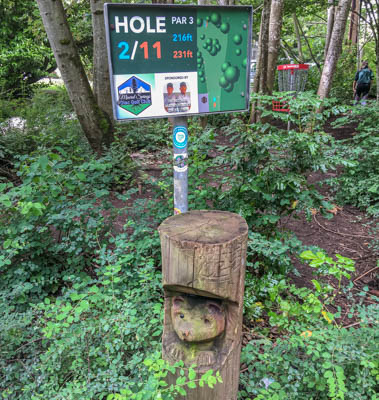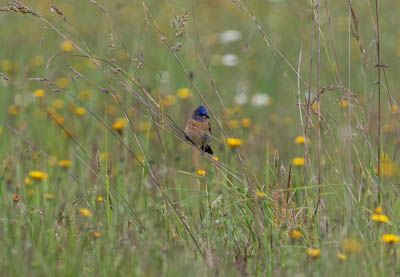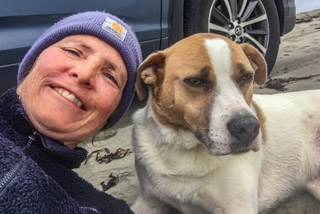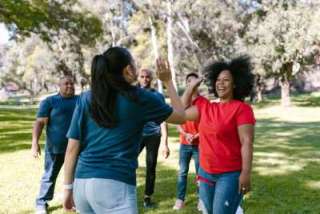Beginner Mindset
Beginner Mindset
Embrace a Change Mindset
Earlier this summer, my husband, teenage daughter, and I went on three different outings: disc golf, pickleball, and birding. All three are mild physical activities, done outside, and require different skill sets. They also provided me with a wonderful insight into how important it is to maintain a beginner’s mindset for optimal fun.
Disc Golf Reminded Me of the Value of a Beginner’s Mindset
We started with a “practice hole” at North Park since our daughter had never played before. I wasn’t sure how my right wrist would do, since I was still rehabbing it from a break four months earlier. My first throw went perpendicular to the intended direction. I have zero control. I’ll have to throw leftie. Unfortunately, I pitched the next disc into the street. Mortified, I considered walking the entire course as a spectator. Not once did I think, With my injured wrist, it’s like I am a complete novice. Better change strategies.
Meanwhile, my husband (who has played a lot of golf and disc golf) reached the chain basket in 3 throws. Me? Try twelve. I used to be able to throw much harder and farther. I can’t win; I can’t even compete. My wonky throwing will only slow us down.


Comparison Squashes Fun
Uh oh. You can see where this is headed. To quote Lost in Space, season 1 episode 10, “Danger, Will Robinson!” I fell prey to comparing, competing, and creating faulty expectations. When would a novice — injured at that — ever beat someone skilled? I was asking all the wrong questions. I’d succumbed to GAP thinking. (Please refer to Dan Sullivan’s book, the Gap and the Gain, for more information.)
As my daughter linked her arm through mine and we returned to start the first hole “for real,” I quickly constructed a new narrative with different goals: be outside, share a new experience with my family, practice throwing straight, and improve from the previous hole.
For the next few holes, as my husband continued with par 3’s, I focused on my own efforts. When my score dropped from 12 to 8 and then 7, and I straightened out the disc’s flight path, I smiled. I’m learning. I’m improving. This is fun. When we left, I wanted to keep playing. I’d reached the Gain.
Pickleball and Lack of a Beginner’s Mindset
Next, we tried pickleball, something none of us had played before. I’d never even heard of it until friends mentioned playing. My racquet experiences extended to squash, ping pong, badminton, and tennis, but the whiffle balls don’t bounce much, and they take some getting used to. We watched a two-minute video on the basics and set out to play with our brand-new equipment.
As with disc golf, I tried using both hands. This time, I could hold the paddle with my right arm, but each contact sent a zing up my wrist. It’s good rehab, I convinced myself. My husband played on one side, and my daughter and I teamed up on the other. Our only goal was to try it out, kind of like we hit the badminton birdie in our backyard with no net.
Competition Can Reduce Joy
After we’d volleyed for a few minutes, laughing about the short racquets and balls that don’t bounce, a kind stranger approached and offered to teach us the rules. A fourth! Why not? Unfortunately, this meant fewer opportunities for each of us to hit, and that darn competition thing returned. My daughter got frustrated and left, while my husband and I stayed a few more minutes, hoping to pick up a few useful tips. “Dinking” turned competitive; fun became work.

When we finally located our daughter hanging out by a stream, she said she’d be happy to try disc golf again, but not pickleball. At least, not if we were going to repeat what had just happened. The lesson, at least in our family: competing before you have mastered basic competencies reduces the joy.
Birding and Chasing a Rarity
Our final adventure of the day was to Marymoor Park in Redmond to try to spot a rare species, the blue grosbeak, which had only been seen north of Oregon three times in Ebird.org‘s recorded history. Birding is a rather solitary activity — you generally don’t want scores of people disturbing the birds you want to see. Yet when rarities appear, it can become quite a social event.
My husband is a Master Birder through Seattle Audubon. He also has countless hours of practice with a 500mm lens, taking photos of birds in flight. Here, I knew from the outset what my expectations were: Spot the blue grosbeak. Secondary? Get a photo. Hard enough since birds are wild and unpredictable.
I also knew there would be dozens of other birders with far more experience looking for the same bird. In this case, it would help me to get a glimpse. I simply went along for the ride to absorb whatever knowledge everyone else shared. The result? I enjoy birding with people who know a lot more than I do. While I can maintain a beginner’s mindset, I can also help teach others who know less about it than I do. Win-win.

The Takeaway Lessons
The day’s ramblings reminded me of four key points:
- For optimal fun, whimsy, and play, maintain a beginner’s mindset
- Establish realistic expectations, as that leads to staying in the Gain
- Compete only with yourself, while you establish basic competencies, or risk squelching your joy
- Learning can be challenging. For optimal learning, cultivate a beginner’s mindset
If there is something you have wanted to try, explore it with a playful, childlike, and curious mindset. Find someone who can mentor you in a gentle, non-competitive way. Give yourself permission to be a complete novice, without judgment or embarrassment. And above all else, have fun.





